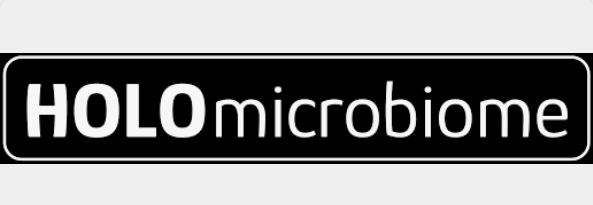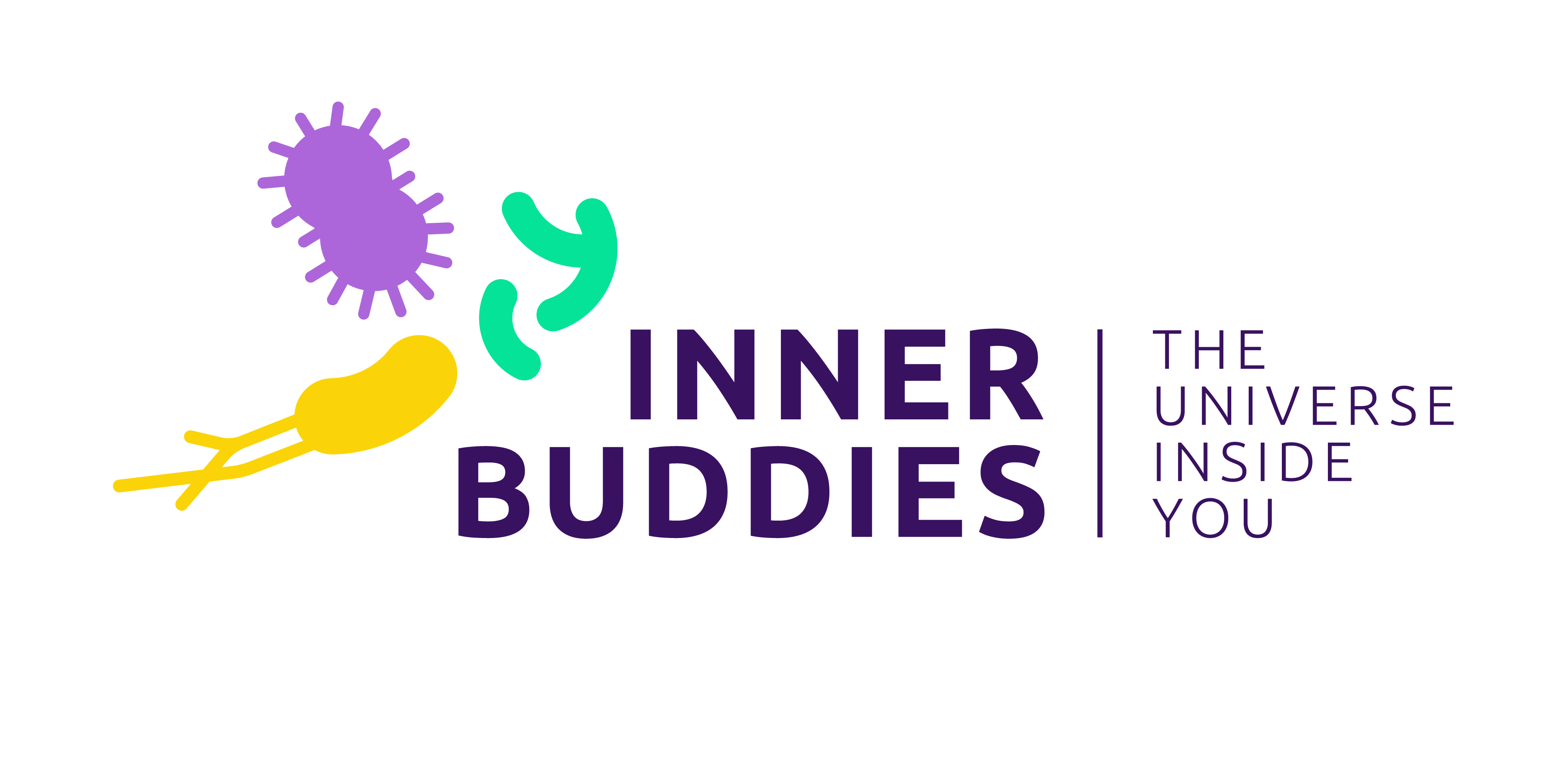
InnerBuddies participating in the Dutch Holomicrobiome Groeifonds Project
Discover the Dutch Holomicrobiome Groeifonds project and its groundbreaking research on microbiomes. Learn about the key participants, objectives, and the role of companies like InnerBuddies in advancing health, sustainability, and economic growth.
The Holomicrobiome Groeifonds project represents a significant initiative by the Dutch government to advance microbiome research and its applications across various sectors. In March 2024, the Dutch cabinet allocated €200 million from the National Growth Fund to establish a public-private consortium dedicated to studying microbiomes and their economically viable applications.
Objective of the Holomicrobiome Groeifonds Project
The primary objective of the Holomicrobiome Groeifonds project is to map, analyze, and model the relationships between microbiomes in humans, animals, soils, plants, and the environment. By integrating microbiome research across various scientific domains and business sectors, the project aims to:
-
Enhance Health and Sustainability: Develop innovative applications that contribute to human, animal, and environmental health, as well as sustainability.
-
Foster Economic Growth: Stimulate economic growth by creating new opportunities in sectors such as agriculture, healthcare, and environmental management.
-
Advance Scientific Understanding: Deepen the understanding of microbiomes and their complex interactions within ecosystems.
Participants in the Holomicrobiome Groeifonds Project
The project brings together a diverse consortium of participants, including:
Academic Institutions
Ten Dutch universities and five university medical centers are involved, contributing their expertise in microbiology, ecology, medicine, and related fields.
The Holomicrobiome Groeifonds project is a collaborative initiative involving ten Dutch universities and five university medical centers. The participating universities are:
- University of Amsterdam (UvA)
- Vrije Universiteit Amsterdam (VU)
- Radboud University (RU)
- University of Groningen (RUG)
- Delft University of Technology (TUD)
- Utrecht University (UU)
- Maastricht University (UM)
- University of Twente (UT)
- Leiden University (UL)
- Wageningen University & Research (WUR)
The five university medical centers involved are:
- Amsterdam UMC
- Erasmus Medical Center (Erasmus MC)
- Leiden University Medical Center (LUMC)
- Radboud University Medical Center (Radboud UMC)
- University Medical Center Groningen (UMCG)
These institutions collaborate to advance microbiome research and its applications across various sectors.
Research Organizations
The research organizations involved in the Holomicrobiome Groeifonds project include the following:
-
Netherlands Institute of Ecology (NIOO-KNAW): This institute focuses on ecological research, particularly the interactions between microorganisms and their environments.
-
KWR Water Research Institute: KWR specializes in water-related microbiome research, including the study of microbiomes in water systems and their role in water quality and sustainability.
-
Wageningen Research: This branch of Wageningen University and Research is engaged in research on the microbiomes of plants and animals, with a focus on agriculture and sustainability.
These research institutes, alongside the academic institutions and private sector participants, are working together to explore and advance microbiome science in a range of fields including health, agriculture, and environmental sustainability.
Private Sector Partners
Numerous companies, ranging from startups to established enterprises, are collaborating to translate research findings into practical applications. The Holomicrobiome Groeifonds project brings together several private sector companies that play a key role in translating research findings into real-world applications. These companies span a variety of industries, including agriculture, healthcare, biotechnology, and environmental sustainability.
Some of the private sector participants include:
- DSM
- Danone
- Arla Foods
- InnerBuddies
- Genzai
These companies, along with others, contribute to the commercial development of new products, services, and solutions based on microbiome research, which has the potential to revolutionize multiple industries.
Government Bodies
The Ministry of Agriculture, Nature and Food Quality (LNV) is leading the initiative, coordinating efforts among various stakeholders.
Several government entities are involved in the Holomicrobiome Groeifonds project, overseeing and coordinating its implementation and ensuring that the project aligns with national research and economic goals. The key government participants include:
- Ministry of Agriculture, Nature and Food Quality (LNV): This ministry plays a central role in coordinating the project and aligning it with the Netherlands’ goals in sustainable agriculture, food quality, and environmental health. The LNV is heavily invested in the potential of microbiome research to improve agricultural practices and promote sustainability.
- Health and Youth Care (VWS): This ministry is involved through its focus on healthcare and public health initiatives, particularly in how microbiome science can improve health outcomes and help address challenges like chronic diseases, antibiotic resistance, and the development of new medical treatments.
These government entities work together to provide strategic oversight, funding, and guidance to ensure the success of the Holomicrobiome Groeifonds project, with a focus on both scientific and societal outcomes.
What are the main unknown topics that the Holomicrobiome Institute wants to research?
The Holomicrobiome Institute, which is central to the Holomicrobiome Groeifonds project, aims to address several key scientific unknowns regarding the microbiome and its interactions with human, animal, plant, and environmental systems. The institute will focus on expanding knowledge in areas that have the potential to transform sectors like health, agriculture, and sustainability. Some of the main unknown topics that the institute aims to research include:
1. Microbiome Interactions Across Different Ecosystems
One of the most significant unknowns is how microbiomes in humans, animals, plants, and the environment interact with each other. While microbiomes are known to play crucial roles in individual ecosystems, the interconnectedness between different microbiomes and their collective impact on health and the environment remains poorly understood. Key research questions include:
- How do microbiomes from different species (human, animal, plant) communicate and influence one another?
- What is the role of environmental microbiomes (soil, water, air) in supporting or disrupting other microbiomes?
2. Microbiomes and Disease Prevention
The microbiome’s potential in preventing or managing diseases is a rapidly growing area of research. However, many questions remain regarding the precise mechanisms through which microbiomes influence human and animal health. Key unknowns in this area include:
- What specific microbial species or community compositions protect against chronic diseases (e.g., obesity, diabetes, cardiovascular diseases)?
- How can microbiome interventions (e.g., probiotics, prebiotics, fecal transplants) be optimized to treat or prevent diseases?
- What role do microbiomes play in the onset of autoimmune diseases, allergies, and inflammatory conditions?
3. Antibiotic Resistance and Microbiome Modulation
Antibiotic resistance is a pressing global challenge, and microbiomes play a critical role in the development and spread of resistance. However, understanding how microbiomes contribute to resistance mechanisms, and how they can be modulated to reduce resistance, remains unclear. Key research questions include:
- How do microbiomes contribute to the development of antibiotic-resistant pathogens?
- Can we use microbiome-based therapies to reduce or reverse antibiotic resistance?
- How can microbiome interventions help mitigate the impact of overuse or misuse of antibiotics?
4. Microbiomes in Agriculture and Sustainability
Agriculture and environmental sustainability could greatly benefit from a deeper understanding of microbiomes. The institute will focus on how microbiomes can be harnessed to improve soil health, crop yields, and sustainable farming practices. Key unknowns in this field include:
- How can microbiomes be optimized to enhance plant growth and increase crop resilience to pests, diseases, and environmental stress?
- What is the role of soil microbiomes in carbon sequestration and mitigating the effects of climate change?
- How can microbiomes in livestock be managed to improve animal health, productivity, and sustainability in farming systems?
5. Microbiomes and Environmental Health
The role of microbiomes in the environment, particularly in areas like water systems, air quality, and waste management, remains a largely unexplored topic. The institute aims to research how microbiomes interact with environmental factors and contribute to the overall health of ecosystems. Some key questions include:
- How do microbiomes in natural and urban environments influence pollution levels, biodiversity, and ecosystem services?
- What is the role of microbiomes in the degradation of pollutants and toxins in soil, water, and air?
- How can we use microbiome science to develop sustainable solutions for waste management and resource recycling?
6. Personalized Microbiome-based Healthcare
Microbiomes vary widely between individuals, and understanding the role of individual microbiomes in health and disease is a critical area of research. The institute will investigate how personalized approaches can be developed based on microbiome profiles to improve healthcare outcomes. Key unknowns include:
- How can we develop personalized microbiome-based treatments or interventions for different individuals or populations?
- What are the long-term effects of personalized microbiome therapies on health outcomes, and how can they be optimized?
- How can we monitor and track changes in an individual’s microbiome over time to tailor interventions effectively?
7. Microbiome-Driven Biotechnology
The potential for microbiomes to drive biotechnological innovations is vast but largely untapped. The Holomicrobiome Institute will explore how microbiomes can be utilized in the development of sustainable biotechnologies. This includes:
- How can microbiomes be harnessed to produce sustainable biofuels, biodegradable plastics, or other valuable bioproducts?
- What are the potential applications of microbiomes in industrial bioprocessing, such as waste treatment or carbon capture?
- How can microbiome-driven biotechnologies contribute to circular economy models, where waste is minimized, and resources are reused?
8. Microbiome-based Diagnostics
There is growing interest in using microbiomes as diagnostic tools to monitor and predict health conditions. However, understanding the specific microbial signatures associated with diseases remains an area of active research. The institute will explore:
- Can microbiome profiles be used to predict disease before symptoms appear, allowing for earlier intervention?
- What are the most reliable microbiome biomarkers for diagnosing specific diseases or conditions?
- How can microbiome-based diagnostics be integrated into clinical practice for more effective personalized medicine?
9. Microbiomes in Aging
The microbiome’s role in aging and age-related diseases is a rapidly emerging area of interest. However, there are many unanswered questions about how microbiomes change with age and their potential to influence aging processes. Key research topics include:
- How do microbiomes change over the course of an individual's life, and how do these changes affect aging and age-related diseases?
- Can microbiome interventions help slow down the aging process or delay the onset of age-related conditions like cognitive decline or frailty?
10. Microbiome Ethics and Regulations
As microbiome science progresses, there are significant ethical and regulatory challenges associated with microbiome-based therapies and interventions. The Holomicrobiome Institute will also explore the social, ethical, and regulatory implications of microbiome research:
- What ethical considerations arise from the use of microbiomes in human health, agriculture, and environmental management?
- How can we develop regulations to ensure that microbiome-based interventions are safe, effective, and equitable?
- What are the potential risks and unintended consequences of manipulating microbiomes, and how can they be mitigated?
In summary, the Holomicrobiome Institute seeks to address a wide range of unknowns in microbiome science, from the basic understanding of microbiome interactions across ecosystems to the practical application of microbiome-based solutions in health, agriculture, and environmental sustainability. By exploring these unknowns, the institute aims to unlock the full potential of microbiomes for societal benefit.
What is InnerBuddies role in the Holomicrobiome project?
InnerBuddies, a company specializing in personalized gut health solutions, is actively involved in the Holomicrobiome Institute project. Their role centers on integrating their expertise in gut microbiome analysis with the institute's broader research objectives.
InnerBuddies is also working on a spinoff focusing on agricultural soils called InnerSoils. Since the Holomicrobiome program covers all types of microbiome (including the soil microbiome), there is also a link there for InnerBuddies.

